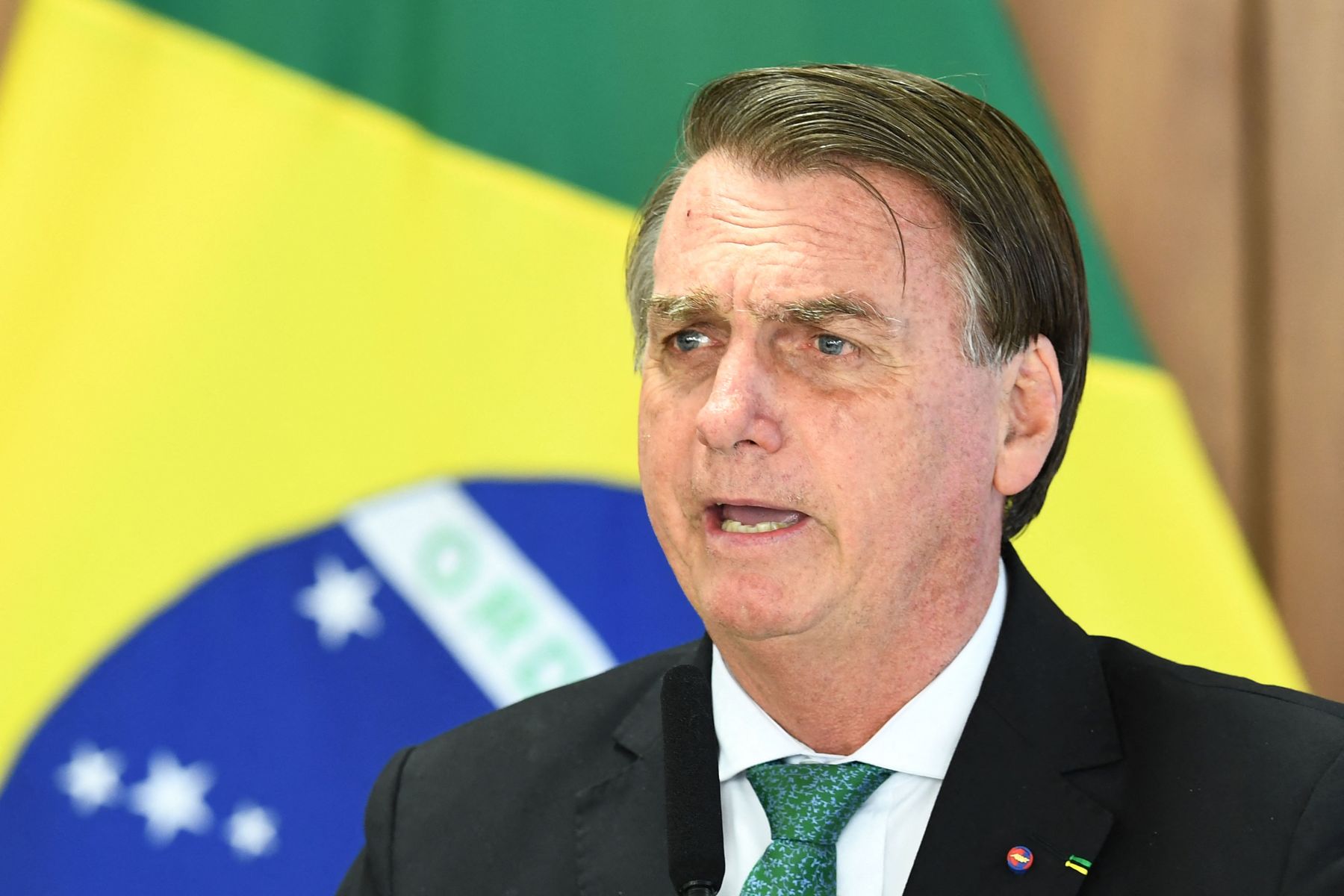South Asia
Bangladesh experienced widespread protests following the death of a high school student during a road accident in Dhaka. The demonstrations come just three years after similar protests over a road accident that killed two students. At the time, new legislation was introduced to increase punishments for reckless driving, which the protesting students are now saying were insufficient. [Dawn]
During the Russia-India-China Foreign Ministers’ Meeting, the three countries agreed to push for an “inclusive government” in Afghanistan. They also called for the implementation of all the decisions made during regional and international forums to ensure that Afghan soil does not become a safe haven for international terrorism. [Hindustan Times]
Central Asia and the Caucasus
Armenian Prime Minister Nikol Pashinyan and Azerbaijani President Ilham Aliyev were hosted by Russian President Vladimir Putin in Sochi on Friday to discuss the ongoing Nagorno-Karabakh dispute. Pashinyan and Aliyev expressed readiness to defuse tensions and resume economic and transport links in the South Caucasus. [RFE/RL]
Allies of Kyrgyz President Sadyr Japarov are set to comfortably win Kyrgyzstan’s parliamentary elections held on Sunday, according to preliminary results. The result was rejected by opposition parties, who accused the country’s election commission of fraud and of “cheating” and “stealing” votes, and demanded that new elections be held. The elections saw a voter turnout of 32.2%, the lowest ever for Kyrgyzstan. [RFE/RL, Reuters]
The leaders of the members of the Economic Cooperation Organization (ECO) attended the 15th ECO Summit in Ashgabat, Turkmenistan on Sunday to discuss trade, investment, energy, and regional and international issues. They also discussed the ongoing situation in Afghanistan and sought ways to address the country’s humanitarian crisis. [Anadolu Agency]
East and Southeast Asia
A recent weekly report published on China’s Center for Disease Control website, titled “On Coexistence with COVID-19: Estimations and Perspectives,” says that if China were to adopt United States-style coronavirus prevention and control methods, it would see approximately 630,000 daily infections. [Global Times]
Indonesia, which is assuming the presidency of the Group of 20 (G20) on December 1, has outlined three priorities for the grouping during its term: global health, energy transition, and digital transformation. [The Straits Times]
Europe
Petr Fiala took over as the Czech Republic’s new prime minister, replacing populist billionaire Andrej Babis after last month’s parliamentary elections. The centre-right leader formed a partnership with the centre-left liberal coalition to gather 108 seats in the 200-seat lower house of Parliament. Fiala was sworn in by President Milos Zeman, who tested positive for Covid-19 last week. “I am convinced that we will soon have a strong and stable government,” said Fiala as the Czech Republic fights record daily increases in new Covid-19 cases. [Euronews]
The United Kingdom and Israel have agreed to work together “night and day” to “thwart” Iran’s nuclear ambitions. This comes as Israel and the UK prepare to sign a ten-year agreement to bolster cooperation on several issues including defence and cybersecurity. [Reuters]

Latin America and the Caribbean
On Friday, Brazil closed its borders to travellers from South Africa, Botswana, Eswatini, Lesotho, Namibia, and Zimbabwe due to the spread of the Omicron variant of the coronavirus in southern Africa. President Jair Bolsonaro insisted, however, that Brazil would not undergo any more lockdowns, saying the country “cannot withstand” it. [MercoPress]
Honduran President Juan Orlando Hernández, who has been in power since 2014, is set to be unseated following elections in the country on Sunday, meaning that his National Party could lose its grip on power after 12 years. Although there were fourteen parties and twelve candidates who contested, it is expected that Xiomara Castro from the leftist Liberty and Refoundation party is most likely to replace the highly unpopular leader, who has drawn rebuke for corruption and his alleged involvement in drug trafficking. [Associated Press]
Middle East and North Africa (MENA)
Israel announced on Saturday that it would ban the entry of all foreigners into the country for two weeks to contain the spread of the new coronavirus variant, Omicron, which is said to be more contagious than the Delta variant of the virus. Israel became the first country to completely shut down its borders to stem the spread of Omicron. [Reuters]
Five Kurdish Peshmerga fighters were killed and four others were wounded in a roadside bomb attack by Islamic State terrorists in the Diyala province is eastern Iraq. Kurdistan Region President Nechirvan Barzani noted that the attacks indicate that ISIS has been “reassembling,” warning that this poses a “serious threat” to the region. He called for greater cooperation between the Peshmerga, Iraqi armed forces, and the global coalition to defeat ISIS. [Rudaw]
North America
Trump-era Defence Secretary Mark Esper filed a lawsuit against the Defence Department on Sunday, accusing his former employer of unjustly blocking certain sections of his memoir, “A Sacred Oath.” The memoir details Esper’s tenure as Army secretary from 2017 to 2019 and his 18 months as defence secretary, during which he overlooked unprecedented civil unrest, the deadly pandemic, and deteriorating foreign security ties. [ABC News]
On Sunday, the Canadian government confirmed North America’s first two cases of the Omicron variant of the coronavirus. The new variant was detected in Ottawa among two individuals who recently travelled to Nigeria. In a statement, the province’s chief medical officer of health emphasised on the importance of stopping the new variant at the borders. [CBC]
Oceania
Fijian Prime Minister Frank Bainimarama said on Monday that the country is contributing 50 troops to a peacekeeping force in the Solomon Islands after anti-government riots spread to parts of its capital, Honiara. The addition of the Fijian contingent will lift the number of total peacekeepers to about 200 troops and police officers. The mostly Australian joint peacekeeping force also includes 34 personnel from Papua New Guinea. [RFI]
Australian Health Minister Greg Hunt said on Monday that the country is “vastly, vastly better prepared than the overwhelming majority of the world” in terms of dealing with the new, highly infectious Omicron variant of the coronavirus. [The Straits Times]
Sub-Saharan Africa
South African President Cyril Ramaphosa said he was “deeply disappointed” by the travel bans placed on the country after it detected the Omicron variant of the coronavirus, B.1.1.529, which is believed to be more infectious. The United Kingdom, the European Union, the United States, Brazil, and Israel are among those to have implemented such a ban. Ramaphosa remarked, “The only thing the prohibition on travel will do is to further damage the economies of the affected countries and undermine their ability to respond to, and recover from, the pandemic.” [BBC]
The Mastercard Foundation and Africa CDC announced that they have purchased 15.2 million COVID-19 vaccines under their $1.5 billion Saving Lives and Livelihoods initiatives. The Foundation plans on purchasing vaccines for over 65 million people on the African continent. [All Africa]

